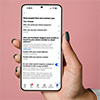The FTC’s long-awaited rule on unfair or deceptive fees has officially taken effect. It’s designed to put an end to so-called “junk fees,” the mandatory charges tacked onto everything from hotel stays to concert tickets that often don’t show up until checkout. In theory, companies must now show the total price upfront in ads, listings, and at the point of sale. That includes fees that are unavoidable, like resort fees or service charges, which can significantly inflate the final price you pay.
I’m happy to see this rule make it across the finish line. As someone who’s been frustrated more times than I can count by hidden fees, especially when booking hotels or live event tickets, this feels like a long-overdue win for transparency. When I’m shopping for a hotel room or comparing ticket prices, I want to know the real cost. I don’t want to play a game of hide-and-seek with fees that suddenly appear at checkout.
Read more: Google Adds Hotel Price Tracking – Here’s the Fine Print
I especially hated planning trips to Las Vegas for CES. Many hotels adds a hefty “resort fee,” sometimes 30% or more of the room rate. For example, Caesar's Palace now charges an absurd $55 resort fee per night. Hotel comparison sites, like Google, often didn't include these fees, so I would waste significant time trying to find the best rate.
The FTC’s new Trade Regulation Rule on Unfair or Deceptive Fees is supposed to stop that practice, known as “drip pricing.” The rule doesn’t just require full-price disclosure. It also bars businesses from misrepresenting what fees are for or whether they’re refundable. According to the FTC, this could save consumers billions and level the playing field for companies that already advertise honest prices.
Read more: Skip the Wallet – TSA Now Accepts Digital IDs on Your Phone
But while the rule is now in effect, the real test will be enforcement. The FTC has the authority to issue penalties for violations; whether that power will be used consistently, especially under shifting political priorities, remains to be seen. I’m cautiously optimistic. The rule is good policy, but like so many things in consumer protection, it’s only as strong as the will to enforce it.
For now, I’ll be watching closely. If the FTC follows through and holds companies accountable, it could finally signal the end of junk fees and make online shopping and travel booking a lot less aggravating. Here’s hoping it doesn’t get quietly ignored.
[Image credit:concept image of a concert ticket being scanned by DALL-E]















